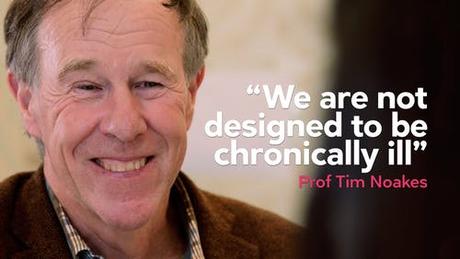
The diabetes diet debate has shifted, and the result could save millions of people.
The question used to be, is a low-carb high-fat diet dangerous? Is it going to kill us?
Now the question has become, is a low-carb high-fat diet the best first-line treatment for reversing diabetes in millions of people?
According to a recent article in inews.co.uk, the answer is probably: Yes. That's an impressive evolution.
The article referenced a review study published in The American Journal of Clinical Nutrition from July 2018. The authors reviewed 36 studies that measured HgbA1c (a marker of your average three-month blood sugar level) in response to the percentage of carbohydrates vs fats consumed. They defined low carbohydrate diets as <40% of calories from carbs. Compared to the standard American diet, <40% may be low carb. But in today's health conscious low-carb circles, 40% is still an enormous amount of carbohydrates (many consume <5% from carbs).
Here's the amazing part. Even with 40% carbs, even though the difference was small and tended to decrease over time, the low carb diets showed better efficacy than low-fat diets for reducing HgbA1c. To be honest, this was a fairly low-quality study with unimpressive results. Yet the take away for many was the same. Low carb works for improving diabetes.
While I agree that low carb diets should be first line interventions for those with diabetes, I do not believe this is the best trial to show that. Far better, in my opinion, are the 10-week and 1-year trial data from Dr. Hallberg and Virta Health. Their very low (<5%) carbohydrate intervention showed 83% compliance with a reduction of HbgA1c from 7.6 to 6.3%. That's an incredible result. But here is the kicker. They achieved those results while eliminating or reducing insulin in 94% of the patients.
So, while we should appreciate The American Journal of Clinical Nutrition study, we also have to interpret it in light of the available evidence. Lower quality observational evidence is conflicting and is fraught with confounding variables, methodological problems, and the inability to prove causation.
Instead, we should be focusing on the higher quality intervention studies, such as that from Virta Health, to help guide us. This is the science that supports low-carb diets being the first-line treatment for individuals with diabetes. The time has come to change the paradigm for treating diabetes and science is showing us the way.
Thanks for reading.
Bret Scher, MD FACC
Earlier
Britain's NHS to fight diabetes with very low-calorie liquid diet How Tom Watson reversed his type 2 diabetesGuides
How to reverse type 2 diabetes A low-carb diet for beginners

